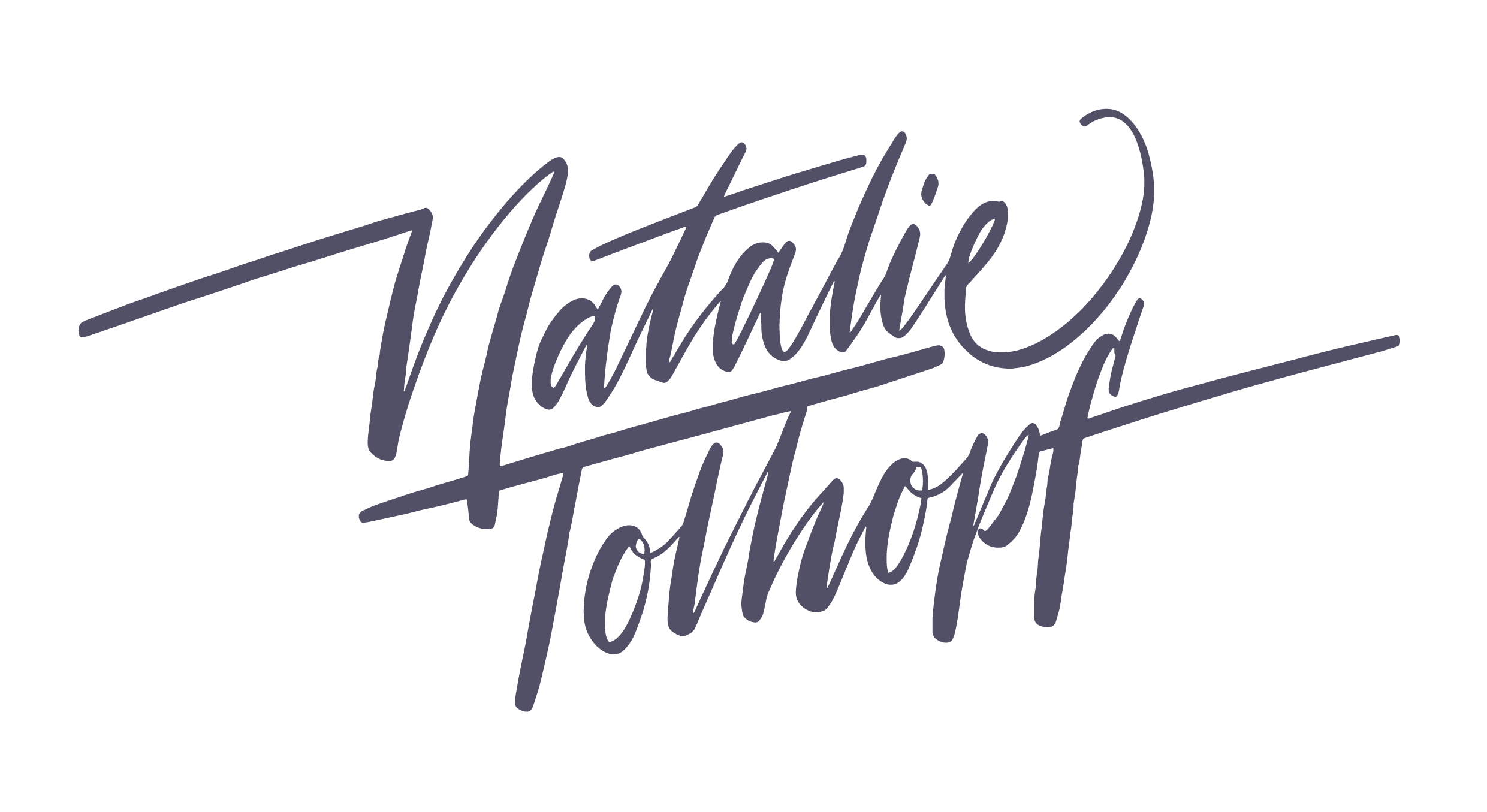Episode 36: Three ways to stop winging it and grow UP in your biz
This episode is sponsored by The Accounts Department for stress-free accounting.

Hey there, welcome to this week’s episode! I’m super excited to be chatting with you about how to stop winging it in your business. It’s something so many of us do, and it can really hold us back. So, let’s dive in and figure out how to get more strategic and build a business that’s sustainable and successful.
Signs You’re Winging It:
- You constantly feel overwhelmed by all the things you could be doing.
- You’ve got a million unfinished projects and unopened courses (I’m talking to you, course whores!)
- You’re jumping from tactic to tactic without a clear plan.
Three Ways to Stop Winging It and Grow Up:
#1 – Planning: I know, I know, planning can be a total drag. But trust me, it’s essential for building a solid foundation for your business.
- Figure out what works for YOU: Do you like big-picture planning or do you prefer to focus on the day-to-day?
- Batching: Batching is a game-changer! It helps you be more efficient and frees up your time to focus on the big stuff.
- Get out of the weeds: Take some time to step back and look at your business from a broader perspective. This will help you make more strategic decisions.
#2 – Consistency: This is where the magic happens! Showing up consistently is key to building momentum and growing your business.
- Find your natural flow: What are you already good at? Where do you naturally show up consistently?
- Write a job description: This will help you focus on the most important tasks and avoid getting overwhelmed.
- Stick to a strategy: Find a strategy that works for you and stick with it! But remember, be flexible and willing to pivot if something’s not working.
#3 – Discipline: This is the not-so-fun part, but it’s crucial for success.
- Treat your business like a job: You wouldn’t just not show up to your 9-to-5, so don’t do it to your business either!
- Find your MVP: What’s the minimum viable product you can create or offer?
- Get some external accountability: A coach or accountability buddy can help you stay on track.
Remember, growing up in business isn’t always easy, but it’s definitely worth it! By focusing on planning, consistency, and discipline, you can build a business that’s strong, sustainable, and successful.
Key Takeaways:
- Winging it might work in the short term, but it’s not a sustainable strategy for long-term growth.
- Planning, consistency, and discipline are the key ingredients for building a successful business.
- Don’t be afraid to ask for help! A coach or accountability buddy can make all the difference.
That’s all for this week’s episode! I hope you found these tips helpful. Remember, you’ve got this! Now go out there and kick some ass in your business.
Connect With Nat Instagram / Facebook / LinkedIn / YouTube
- Have a biz bud who needs a kick in the pants? Share this episode with them!…
- Check out all the episodes of Sell With Confidence on Spotify here …
- or on Apple Podcasts here…
- Read how to ditch your doubt and take imperfect action in my book Allergic to Perfect.
- Read how to stop playing small, own your expertise and elevate your biz in my latest book Become Unstoppable.
- If you’ve read the books already and you’re like “Nat, I’m ready to rock and roll!”, then jump on a sales brainstorm with me! Or get all of me with some serious 1:1 coaching! Get yourself a booking here!…
Hey, welcome to this week’s episode, three ways to stop winging it and grow up in biz.
I, as I say about every podcast, I’m super excited about this one, but I really am because I’ve actually had a few of you directly ask me this, my, oh my gosh, I need to stop winging it.
And I feel like I need to grow up.
And I’m like, yeah, that’s actually how you know that you’re winging it, is you actually just know you’re winging it.
You’ll just be like, I feel like I’m winging it.
And it’s a feeling.
And you know when you’re winging it because you won’t stop and track it, you don’t have the kind of metrics or the tracks to see what’s performing well and you know that’s one of the things that a coach will say is like hey well what is working and you’ll be like well I don’t know. That’s when you
that’s when we can kind of back up like yeah you’re probably winging it And here’s the thing, right?
Like I love winging it.
I think winging it definitely has a place and I think it’s just a reframe of that word of like being agile.
So having a plan but being agile and knowing how to take imperfect action.
Because a lot of incredible businesses have got to where they are because they have wung it.
Is that the wung word?
Can you wung it?
They wingded it.
Winged it!
And I think that that’s great because it means that you’re not throwing spaghetti at the wall but you’re throwing spaghetti and it’s actually sticking and you’re winging it and you’re doing things, you’re not procrastinating, you’re not doubting yourself, you’re getting out there and making shit
happen.
So there is a positive side to winging it.
I think that just when we want to kind of grow up in our businesses and start to get a little bit more strategic And making sure that our foundations are really deep, really strong, so we’re building broadly as opposed to too deep, because what can happen if we keep winging it?
If you imagine watching a toddler building blocks and they just keep building one pillar up and the whole thing topples.
So when I talk about building broadly, and you’ve done it with a, I don’t know about you, but I used to love stacking cards as a kid and making card houses.
And it would only really work, wouldn’t it, if we had a really kind of Um, wide platform down the bottom for the cards to then sit amongst it.
So, you know, there’s lots of reasons now to kind of go, okay, let’s come back down and maybe stop winging it and get a little bit of, um, our grown up self in, you know?
So we’re going to talk about what that looks like today on this session.
Um, and another way to know if you’re kind of winging it and if it’s starting to be a problem is I think some red flags are like You keep having ideas where in the past having ideas you were excited about them and actioned them and kind of didn’t get overwhelmed by them.
So if you’re starting to feel overwhelmed and, you know, opening up and downloading all the new marketing tactics that are coming out and all the nice to haves in your business, so like all those kind of perfect to nice to have things, And you feel a little bit crazy with all these unopened projects
and all these things that you’ve started to create and that overwhelm creeping in.
It’s a really good sign that, yeah, you need to stop chicken winging it.
And here’s one for all my course whores.
Yes, I just called you a course whore.
Is your unopened, incompleted courses.
Now for the perfectionists out there, you’ll literally be shitting your pants.
You’ll be like, I’ve got to finish it, just so I can finish it, even though I don’t need it right now.
So, you know, leave them in open, stop making it a thing.
But yeah, if you’re doing some of those things, overwhelm, you’re getting a little bit crazy person, tactic eyes, and you’re a bit of a course whore, then these can be signs where, hey, let’s just take a beat.
Let’s stop winging it and let’s do a little bit of growth.
So, three ways to do that.
We’re going to start with, I know you’ve got to eye roll, but here’s the thing, planning.
So, planning has always been one of my best friends.
The trick with planning is if you stick to the plan but the plan isn’t working and because we know with business that sometimes you’ve got to be quite nimble so you’ve got to learn to move quickly if the audience or things change and you need to be nimble and, you know, pivot.
I know, I know.
I was going to say that word pivot.
Here it is.
I’ve said it.
It’s okay.
We survived.
But, you know, planning does set a beautiful framework and structure.
So, one of the ways to stop bringing it is to plan.
So, what’s important with planning?
Like, I’ve got a planning system but it’s for me, right?
Like, I’ll show my clients but if they don’t operate in the same way as me, it’s very much about going, well, what will work for you?
So, you know, how do you work best?
So, for me, I will have my revenue goal You know what I want to pay myself, the main goal for the year and then I can break that back into 90 days.
So 90 day sprints or quarters and then I know what I’ve got to work on for the month and then for the day.
So I love the big picture and then everything drops out of that.
So there won’t be an action on my list.
It won’t be an orphaned action and I think that’s where some people go wrong is that’s when you know you’re kind of tactically jumping around and winging it is you’ll have a thing on your list it’s got there’s no it’s often there’s no plan with it it doesn’t sit anywhere and so with planning we can
check in so I get my clients to check in each week we do they’re going to do a focus and I can see what they’re doing but they can also go oh Where the hell did that come from?
Actually, no, it’s not part of my quarterly plan.
No, it’s not part of my yearly plan.
And so it’s really important to know when you work best.
So for me, I work really well in the mornings.
Like I am a morning person.
I never used to be.
Oh my God, it’s been a night owl.
Now I’m like 7.30, can I go to bed?
So it’s really working about like your day too, like plan your day, like how do you work best?
And so also for me, batching works really well.
You’re obviously listening to a podcast unless you’ve, you know, suddenly forgotten you’re on a podcast.
We’re on a podcast together right now.
And, um, I would have batch recorded probably six podcasts in one go.
So for me, that’s extremely efficient.
Um, now I haven’t always liked batching.
Um, but, um, I’m going to talk about batching a little bit further down the line and how it can be powerful.
And it is something that you should, should, I know we talk about shoulds, but actually give that a go, the batching a go.
The other thing key with planning is with planning sometimes we’ll need to come out of the weeds so you’re in zoomed right into your business and you’re amongst all the things and you can forget to pop your head up and zoom out and look across the whole year and actually see how short and small a
year is.
And that will give you quite a narrow perspective when you’re planning.
So a way to get to avoid that is, I mean, not all of us have the luxury to go away, but every quarter I will go away for three days.
And it hasn’t always been the case guys.
Like I used to have the terrible guilts.
And so I’d just do a day.
And then I worked up to doing three days over a period of time to work through some of my own stuff.
But now I go away and there’s lots of downtime, thinking, silence, walking, And what it does is it gives you the time and the stillness to reflect on that bigger picture zooming out thinking and planning that your business needs.
Because essentially if you are winging it that is because you don’t know where you’re winging it to like you’re running but there’s no end destination and that’s fucking exhausting.
So My first tip is planning and those three things how do you work best go do some batching and if you can go away to get stillness to bring that bigger vision through.
So number two is consistency right I’m a consistent queen like I just could show up and then show up and then show even if I don’t like it.
And even if I don’t want to, because the way that I’ve got that, it’s as a learnt skill.
So those of you who don’t know, I am a trained chef.
So back when I was 17, I did a three-year apprenticeship and a chefed for many, many years.
Now, one of the biggest things that a chef learns is they’re consistent.
You have to consistently turn up to work.
I know that all jobs you have to do but you’ve got to consistently deliver the same cheese scones the day before or the same five course degustation menu the night before.
Like you can’t just not be consistent and that’s where I’ve had to let it go of my perfection because again with a chef in particular five star places there was no room for oh this is good enough.
So, you know, done wasn’t better than perfect in a kitchen.
It had to be perfect.
So, you know, I digress.
So, I’ve got a natural discipline of consistency.
I’ve just consistently shown up.
And that’s where I really did learn batching.
So, every day, I’d have to batch make certain things.
And so, you learn to work in volume and bulk, and you see the efficiency of that.
And that’s why I love it.
Consistency helps you then do that batching.
So consistency again is my consistency will be different from yours.
And a really cool way to find your natural consistency is where do you naturally flow?
Where do you already have some natural consistency?
And that’s where you can look for your life.
Like yes, I’m also consistent with exercise.
Like I consistently have always worked out.
Like and I consistently walk the dog so you’ll find that I mean obviously I consistently brush my teeth and shower guys but it’s about finding your natural consistency so I love talking.
I don’t know if you’ve guessed that.
And I also love video.
So I can consistently deliver audio and video because I love it.
So it’s about finding what you love.
So you might like to write, you might like to do cool graphics.
It’s about finding your way through, but to help stop winging it and bring those plans alive, it’s really making sure that you are adding your own consistency to it.
Sometimes I’ll say to a client, particularly if they are running a team and our biggest job is to get them to come out off the tools and into CEO and lead their teams, is they’ll sometimes be like, but what do I do now?
I feel like I’m all over the place and I’m winging it, but they’re not.
It’s just they’re in some unknown territory.
And we’ll get them to write their job description.
Because here’s the thing, I know that all of you have had a job and in those jobs you would have been consistent, right?
Or you would have been fired.
So here’s the thing, you can’t fire yourself and it’s really quite hard sometimes to have that self-accountability to show up in your business, but you have to.
Like, think of it like a job, like you can’t just be like, I’m not going to show up today.
So sometimes writing yourself a job description will really help you see, if you’re trying to do too much and we need to delegate, but it will give you the focus that you need to get shit done.
So the third part of consistency is learning to stick to a strategy.
So the same with cheffing, right?
We’ll have recipes and their tried recipes, their proven recipes and if we decide to not stick to that recipe, we won’t then have consistency and we’ll have unhappy people and we’ll have an unhappy team because it’s like what the hell is this?
This is not the same as it’s meant to be or blah blah blah.
And it’s the same with business is being consistent also means sticking to a strategy.
So there’s lots of strategies out there guys, like there’s different coaches saying different things and that’s cool, right?
We’re all trying to like, we’re all trying to get you to win the same game, which is how can you drive your revenue so you can pay yourself money, right?
Make an impact.
But sometimes and at some stage, In terms of like stop winging it, you’re going to have to find what strategies you search.
Now some people aren’t made for launching.
Some people are pretty shit on video and need to get off it as a strategy and some strategies just don’t work for certain people and that’s okay.
Sometimes when we’re first starting out some established strategies won’t work.
I’ll be doing some strategies that I’ll say to some clients don’t do that because it won’t suit your audience or you.
It’s really about finding strategies that you love, that you’ve seen work before and that you’re open to sticking to them but also knowing when it’s time to go okay that actually isn’t working and I know because I’m not winging it I’ve really tried and so then you do get to kind of be nimble and
change and change that strategy because strategies you know like what worked for me last year isn’t working this year so I need to go to my toolbar of strategies, open up the treasure chest and go, right, what do I love?
What do I think my audience needs?
And here we go again.
So there’s a little bit of an oxymoron there, right?
I’m saying stick to a strategy, but also if the strategy isn’t working, you do need to go move and change.
A little bit like a recipe.
If one of the ingredients has changed and we’ve got a different supplier, sometimes that can affect the recipe and sometimes we do actually have to go and change and move some of the things.
So yeah, it’s consistency.
Number one, planning.
Number two, consistency.
The third one.
Yeah you’re gonna throw some, I think you’re gonna throw tomatoes but that’s okay.
So I’ve really got to go pee and I should have peed before I jumped on to record this podcast.
But I committed to being on the podcast.
I’m not going to wet my pants but I want to have the discipline, like how I introduced number three, discipline.
I’m going to have the discipline to go, I committed to this so I’m just going to carry on.
So number three is discipline.
What a really crazy way for me to have got there for you but I mean that’s the really important thing is that once you commit to something you have to bring the discipline.
So again a little bit like that job analogy like when you were employed Okay, sure you might have had sick days and then when you’re at work, you would have to have pushed through to make some of your job happen.
And it’s the same for your business.
So, listen, if you’re going through a real mental health time and, you know, there’s some issues, Please just disregard what I’m going to say because there is a time to push and have discipline and then there’s a time when you actually need to go and get some help and some rest and all that stuff,
okay?
So I’m still not about that hustle culture.
When I did used to hustle, you know, I got unwell.
So I’m here for mental health and want to advocate it, but to be honest, Business needs discipline, it needs planning, it needs consistency and it needs you to commit to it.
So again it would allow for you to treat your business like that job where you do show up.
So having that job description and then bringing it into like a weekly plan is going to really help you go okay this is what I need to go work on my business consistently.
And that’s the thing with business is it’s sometimes fucking boring and relentless but that’s the discipline.
It’s a little bit like working out and changing your body and getting fitter.
It’s the consistency of the same stuff and it’s the discipline of showing up and it’s very much the same business.
And, you know, so, you know, having that job description, knowing that you’ve got to show up and working on, you know, if you are having an off day or a bad time, what is your MVP?
What’s your minimal viable kind of production?
What is the minimum you can do?
And you know, working a little bit smarter and that’s where planning will help.
So for example, I have an incredible team.
I’ve got Mandy and Chrissy who are my virtual assistants who really helped me repurpose and put lots of things out there.
Because part of my challenges is most of the time I’m with my clients serving my face off to them really caring and caring about them and but of course you know making sure that I’m marketing and selling as well.
So sometimes I won’t have time or I actually am just tired and I need to pull back But I will have repurposed kind of scheduled marketing and a team that’s making sure that I’ve still got that kind of minimal viable presence, right?
So really look for yourself what that could be for you.
And the other thing with discipline, this is where external accountability is powerful, right?
A coach.
Like I know for me my clients know that if they’re going to catch up with me in four weeks time they sure as shit have gone and moved something.
Do you know what I mean?
And the cool thing about also being in group coaching amongst that is if you’re in a group of like-minded people and we’re all moving forward and you’re not taking as much action as the front runner it doesn’t matter you’re going to be pulled along with us.
We’re going to grab you with us and what that means is you’re always going to do more than you would alone because of that beautiful power of the group.
Does that make sense?
So this is where actually coaching or having an accountability buddy is really really powerful.
Someone who you know won’t go, oh it’s okay.
Someone who’ll be like, oh it’s okay but what are we going to do about it next time or how can we mitigate that?
So I love sharing this stuff with you guys today.
I really want you to think about those three areas planning, consistency and discipline and really thinking about where are you winging it in those areas?
Where can you grow up in your business in those areas?
So you’ll notice that I’m doing a bit of play on words on the grow up so yeah grow up but also grow up.
Where can you start to grow your business up?
Yeah, I’d love to hear your takeaways from this podcast.
Once again, share the shit out of it.
Share it with your friends.
Thanks so much for listening.
You guys are amazing.
Catch you later.







